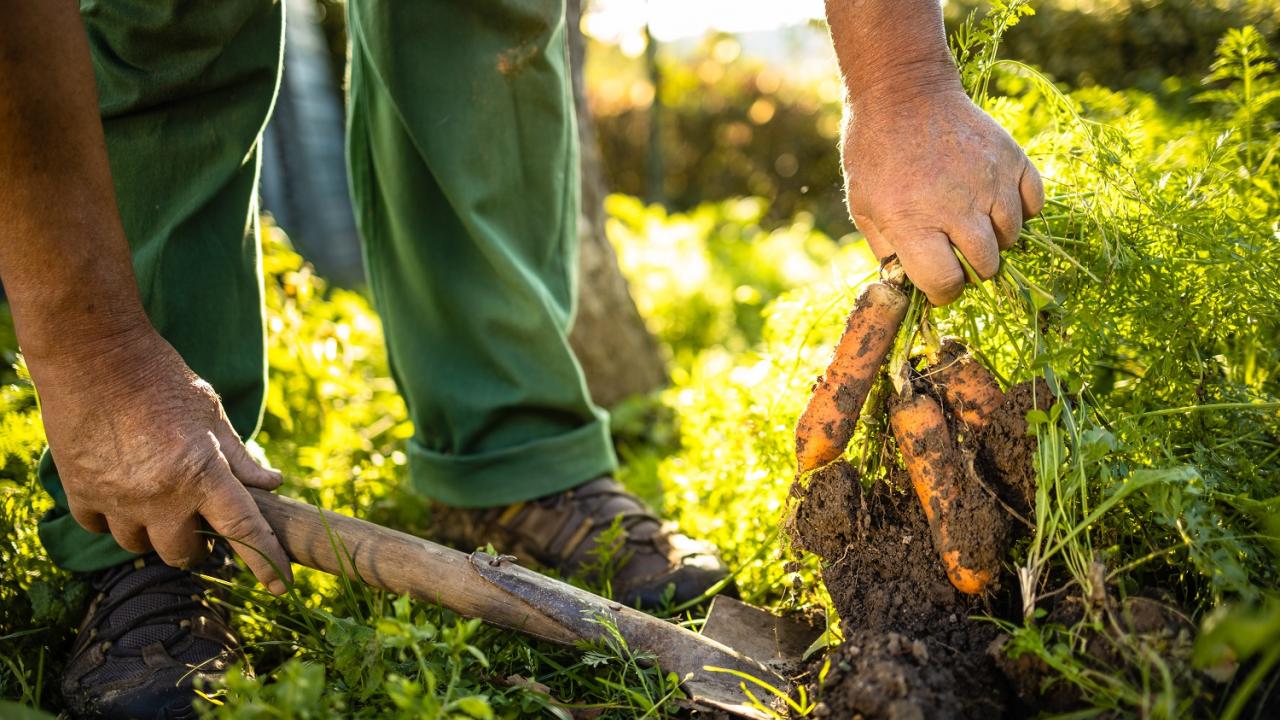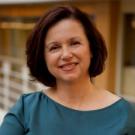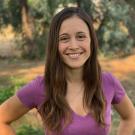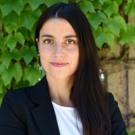
Event Date
About the Event
Does a solution to climate change lay in the dirt under our feet? A holistic approach to farming and the environment is ancient, while informing decisions based on science and data is relatively new. Regenerative agriculture is the paradox of old practices and new methods with promising solutions to climate change while fostering agricultural sustainability and resilience. We will explore what regenerative agriculture means, how it works, the challenges, and what you can do to support it.
Registration:
In Person:
The event will be presented in person at the Sensory Theatre, Robert Mondavi Institute, UC Davis Campus.
- Tickets are $25 per person
- Includes a welcome reception with a hosted bar and light refreshments
- Limited seats are available. Parking details are below.
- A pop-up exhibit from the UC Davis Library Archives and Special Collections will be displayed in the lobby.
Virtual:
A live stream via Zoom will be provided for a nominal fee to help offset the video production costs.
- Tickets are $5 per person
- You will receive a link to the Zoom feed on the day of the event
- Live stream will begin at 6:10 pm PT
Speaker Biographies

Ivo Jeramaz is the Winemaker and Vice President of Vineyards & Production at Grgich Hills Estate in Napa Valley. Born in Croatia to a family of grape growers, he came to the Napa Valley in 1986. During his almost three decades at Grgich Hills, Ivo has worked his way up in responsibility, learning the classic style and art of winemaking from his uncle (Mike Grgich) and being supported by the tools of science and technology. Ivo is now responsible for the day-to-day operations in the cellar and the vineyard, including regeneratively farming Grgich Hills’ 366 acres, without artificial fertilizers or pesticides. He firmly believes that regenerative organic agriculture is the future of farming, and has seen firsthand the improvements to soil health, plant vitality, and social welfare that it impels.

Linda Burch is the CEO of the Alice Waters Institute for Edible Education and Regenerative Agriculture, a nonprofit focused on leveraging the procurement power of K-12 schools and higher education to accelerate the shift to a regenerative organic food system that mitigates climate change, advances human health, and strengthens local communities. Linda holds a BA in East Asian Studies from Yale University and an MBA from Stanford Graduate School of Business. She and her family love media and technology almost as much as they love cooking, hiking, and being in the wilderness.

Jessica Chiartas is President and Lead Scientist at RegenScore, an evidence-backed, place-based, scoring framework for assessing regenerative agriculture. She received her Ph.D. in Soils and Biogeochemistry from UC Davis. Her research focuses on the long-term impacts of agricultural management on soil carbon, soil health, and the provision of ecosystem services across a diversity of soils, climates, and production systems. She is currently a Project Scientist at the Institute of the Environment, where she is working to identify regenerative management systems and quantify outcomes for livestock operations. Over the last five years, Jessica has supported businesses, brands, non-profits, and NGOs in developing bespoke monitoring programs to track the environmental, agronomic, and economic impacts of regenerative management; including Ben & Jerry’s, Simple Mills, Daily Harvest, Citizens of Humanity, Community Alliance with Family Farms, Fibershed, and Moonshot Snacks. Jessica is a technical advisor for the North Coast Soil Health Hub, LandCore USA, PlanetFwd, and Crop/Range-C; and served on the Soil Health Advisory Committee for Regenerative Organic Certified (ROC). She is also founder/creator of Soil Life, a website and series of short videos and educational resources that inspire, empower, and engage young people in the many solutions to global challenges that lie right beneath their feet.

Cristina Lazcano is a soil ecologist and Associate Professor at the Department of Land, Air and Water Resources, University of California Davis. Her international career has taken her from Spain, where she completed her Ph.D., to the Technical University of Denmark, the University of Calgary (Canada) and UC Davis. Before joining the faculty of UC Davis in 2019, Dr. Lazcano was an assistant professor of soil ecology at the California Polytechnic State University, San Luis Obispo. She currently leads a team of 20 researchers at different career stages and from different backgrounds, focused on understanding the links between soil biodiversity, agroecosystem functioning and human health. Her research spans across scales (from plant roots to fields) and integrates a range of techniques such as DNA sequencing of microorganisms to measurement of soil C sequestration and greenhouse gas emissions of agricultural fields. The goal of her research is to generate ecologically based soil management strategies that will reduce the environmental footprint of agricultural production, promoting soil, environmental and human health.
About:
Savor: Lectures on Food and Wine hosts thought leaders, entrepreneurs, policymakers, and scientific experts for evenings of illuminating discussion on some of the biggest topics in food and wine being studied at UC Davis today. The Robert Mondavi Institute and UC Davis Library have embarked on this partnership to advance our shared commitment to supporting scholarship about food and wine, at UC Davis and beyond.
Venue & Parking:
This event will be in-person in the Silverado Vineyards Sensory Theater at the Robert Mondavi Institute, Sensory Building. Parking is available at the Gateway Parking Structure. Parking payment is enforced on weekdays. There are three options for parking payment:
- UC Davis uses AggiePark. Download the free AMP Park app on your iPhone or Android beforehand. When you park, you will enter the Zone (listed on the nearby sign) into the app and follow the instructions to pay for parking. This is the preferred and easiest method.
- If you do not have a smartphone to download the app, you can also sign up for an account online and follow the steps on the website: https://aimsmobilepay.com/
- Alternatively, permit machines in the Gateway Parking Structure accept credit cards. You will need to enter your license plate number into the machine to purchase a permit. We recommend this option as a last choice.
Questions?
If you have questions about this event, please email savor@ucdavis.edu.